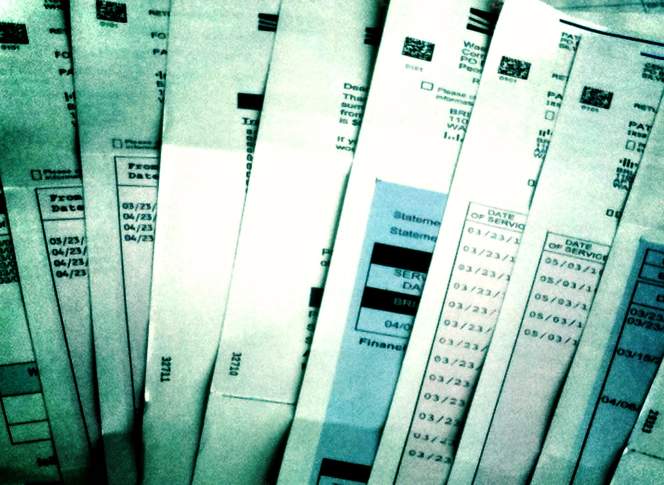What To Do When Medical Bills Pile Up
Twenty-six percent of U.S. adults say they or someone in their household has had problems paying medical bills in the past 12 months. But medical bills should not be ignored.
September 21, 2016

Stack of medical bills

Twenty-six percent of U.S. adults say they or someone in their household has had problems paying medical bills in the past 12 months. Financial difficulties like these are a reality for many people, and can carry over into other parts of their lives and cause additional stresses.
Medical bills should not be ignored. Late or missed payments can affect credit scores, and the debt may go to collections. The problem is relatively common: Nearly 20 percent of U.S. consumers with credit records — 42.9 million people — have unpaid medical debt, according to a 2014 report by the Consumer Financial Protection Bureau.
People who cannot pay their medical bills can take several steps to help solve this problem:
- Patients with health insurance can call their insurance company and ask whether they were charged the correct amount.
- The office that sent the bill should be contacted to confirm the charges. This office could be a hospital, doctor’s office, clinic or other medical provider.
- That medical office should be able to connect a patient to a financial counselor, who should be told about trouble paying a bill.
- That medical office should provide help applying for coverage programs or financial help to lower medical bills.
Most health insurance companies and other medical providers will discuss payment plans — patients should do not be afraid to ask for help. In addition, multiple programs can help people make a plan to pay their bills. People can call the resource and information helpline at 2-1-1 and ask to speak to a financial counselor in the caller’s area. Nonprofit agencies also can help make a plan to pay the bills, including the National Foundation for Credit Counseling (800-388-2227), the Financial Counseling Association of America (866-694-7253) and the National Council on Aging (571-527-3900).
For more information, Covering Wisconsin, a health insurance literacy outreach organization, offers a fact sheet titled “What can I do? I can’t pay my medical bill” that provides step-by-step instructions for people having trouble paying these bills.
Jeni Appleby and Stephanie Severs are health insurance literacy outreach specialists for Covering Wisconsin.
 Passport
Passport











Follow Us